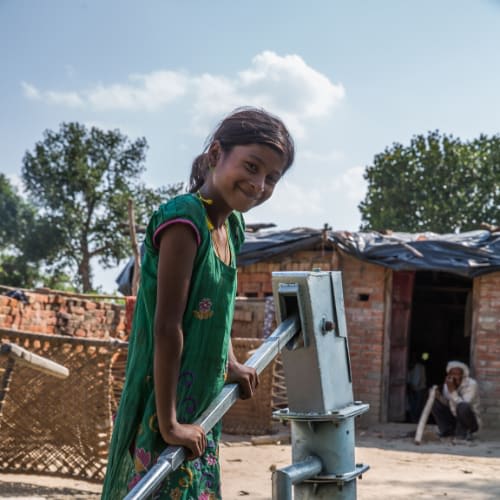10 Essential Facts About Sexual and Reproductive Health in Humanitarian Emergencies

Imagine that you live in a country where a horrible new virus is causing birth defects in children before they are born. It is such a dangerous situation that other, more powerful countries have warned women who are currently pregnant or planning to become pregnant in the next two years not to travel to where you live. But you cannot leave. You can’t avoid the carrier of this virus, the mosquito, which is everywhere. There is one thing you could do, which is to prevent an unintended pregnancy. Unfortunately, you live in a country that constrains your reproductive rights and makes it nearly impossible to get contraception. If you do have an unintended pregnancy, or a pregnancy that places your own life in peril, the government will criminally prosecute and jail you for attempting to terminate the pregnancy. Moreover, your country’s government is aligned with an authoritative religious order that believes contraception is a sin and does everything in its power to further restrict your reproductive rights.
That may sound like the plot of a bestselling young adult dystopian novel, but it’s not. For millions of women living in South and Central America, this is their new reality. Brazil is investigating over 3,000 reported cases of birth defects as a result of Zika and other countries in Latin America are taking measures to assess the potential implications of the spreading virus. Recently several countries, including Colombia, Ecuador, and El Salvador have issued directives to women to avoid pregnancy as a preventive measure.
Avoid Pregnancy. That’s insulting advice from countries with some of the highest rates of violence against women and the most restrictive reproductive rights in the region. Women in El Salvador, Honduras and Guatemala have reported increased safety concerns from physical sexual violence, including repeated rapes and sexual assaults. High levels of criminal gang activity and police corruption, means this violence against women goes unabated.
The lack of protection against sexual and physical violence in Zika infected countries only tells half the story. This same disregard for the health and welfare of women is equally evidenced in the lack of government commitments to ensuring any reproductive rights.
Although contraceptive prevalence in Latin America has increased (with some countries like El Salvador now on par with contraceptive rates in the U.S, with a national CPR of 73%) this high national rate hides huge inequities in access and rights. Contraceptive use is lower among rural populations and lower wealth quintiles. Adolescent pregnancy is a major challenge with one in three babies born to teen mothers, with 43% of those who had been pregnant at least once stating that they did not want the pregnancy at that time. Lack of sexuality education, low service coverage, and other inequities of wealth and opportunity all contribute to the low rates of contraceptive use among adolescents in El Salvador and other Central American countries.
Inequities in contraceptive access across Latin America are bad, but where these countries really fail women is in their draconian abortion policies. Abortion, throughout Latin America, is largely illegal and where legal has severe restrictions. While some countries allow abortion in cases of rape, incest or endangerment to the life of the mother, these exceptions are not widely implemented. Conversations on abortion are stigmatized and finding a health care provider willing to provide the service is difficult. The denial of reproductive rights in these countries forces women to turn to unsafe and illegal abortion. If women are fortunate enough to survive, they can be jailed for having an abortion. In El Salvador, the latest country to urge women to avoid pregnancy in light of the Zika epidemic, there are no exceptions to this persecution. Women who have had stillbirths, miscarriages, and even premature births have been investigated and sentenced (for as many as 40 years), as have doctors accused of carrying out the procedure.
Zika is a frightening virus but telling women to avoid pregnancy in countries with a dearth of options to help do so is not only ironic, but insulting. It also constitutes a double violation of women’s reproductive rights. No government should dictate the timing of a woman’s pregnancy or the number of children she can have. Health officials in El Salvador and other countries so bent on denying reproductive rights would be better off issuing a declaration to avoid mosquitoes. Luckily for the mosquitoes, it’s much easier to blame and criminalize women.
We are fighting back against the onslaught of harmful policies that discard reproductive rights.
Stay informed about the issues impacting sexual and reproductive health and rights.
